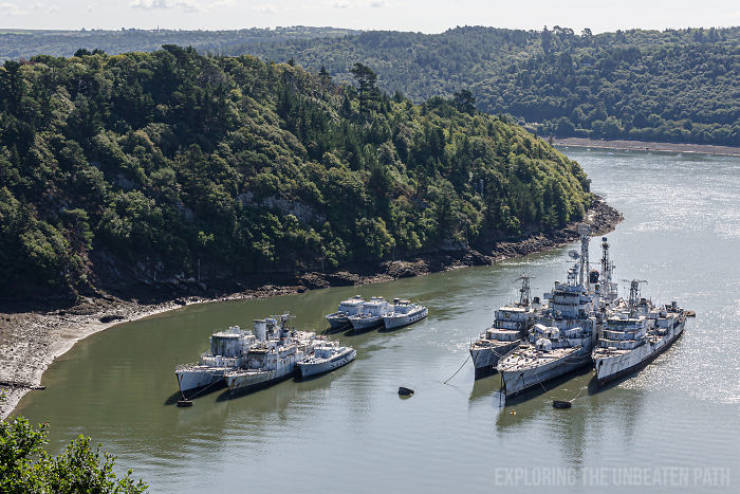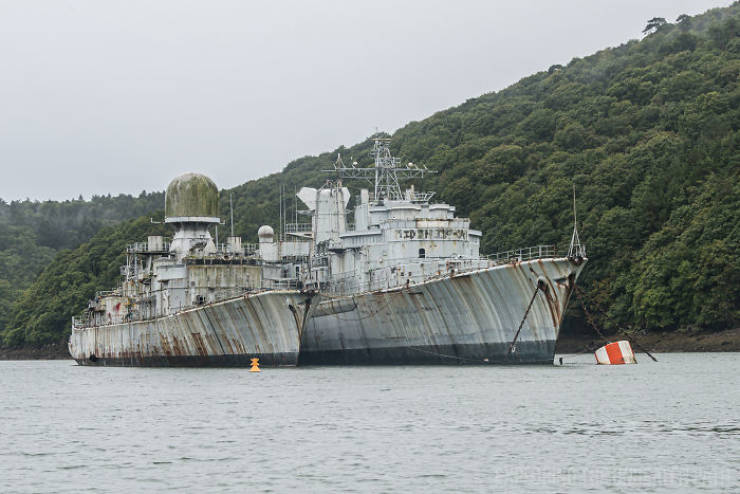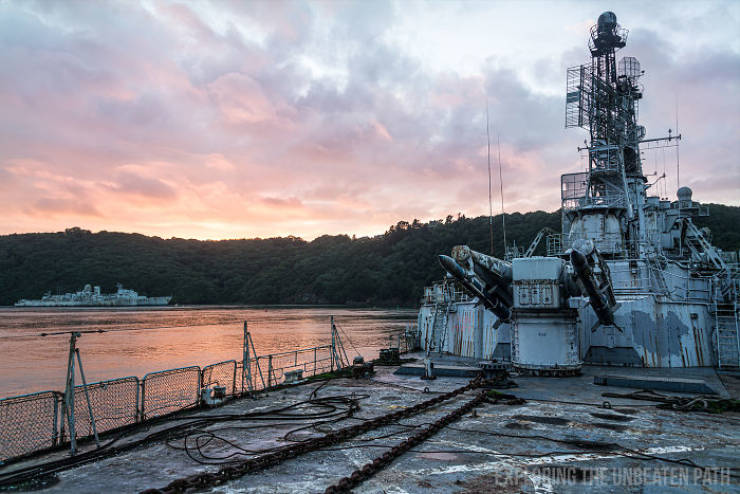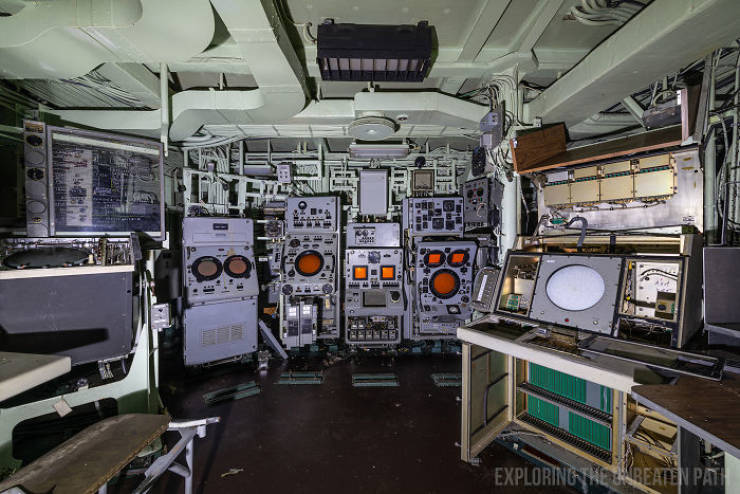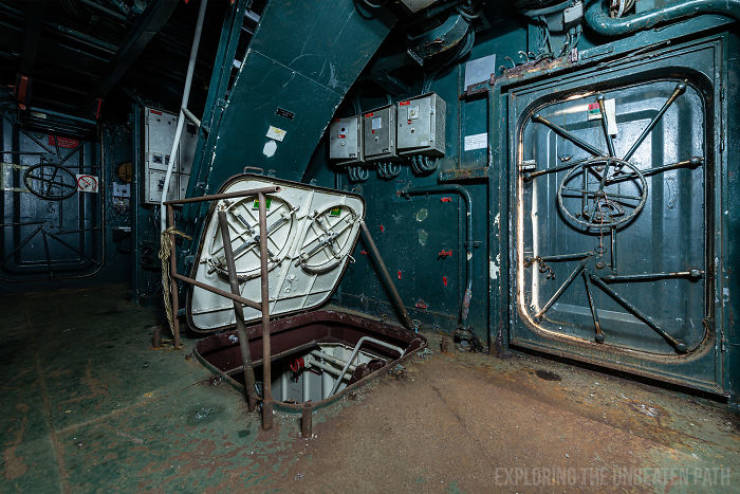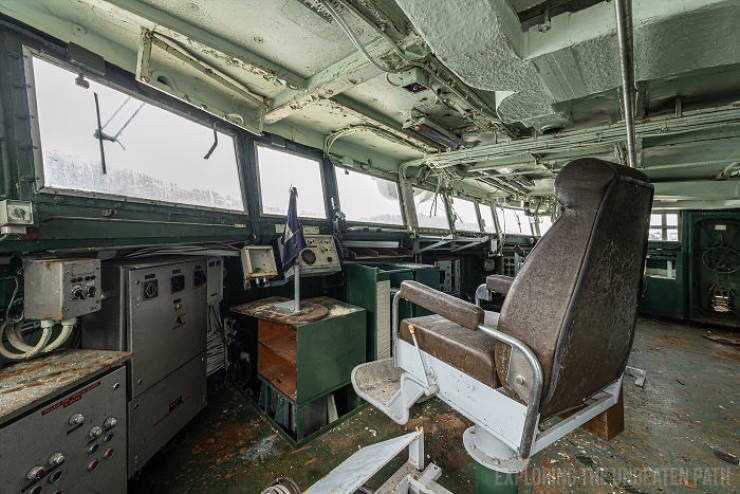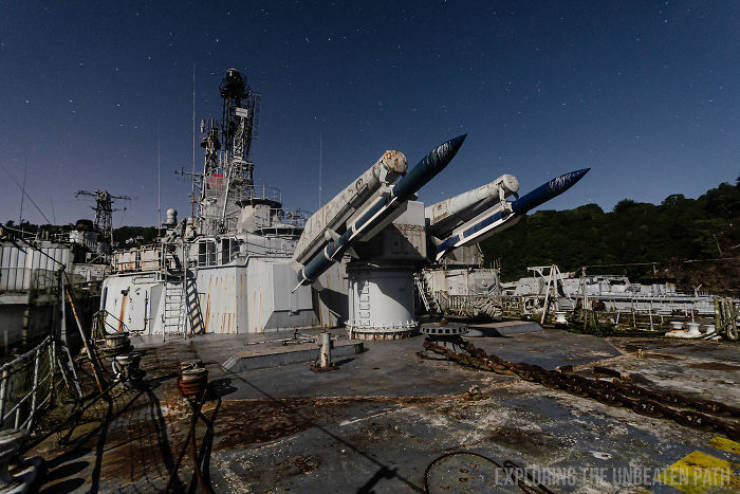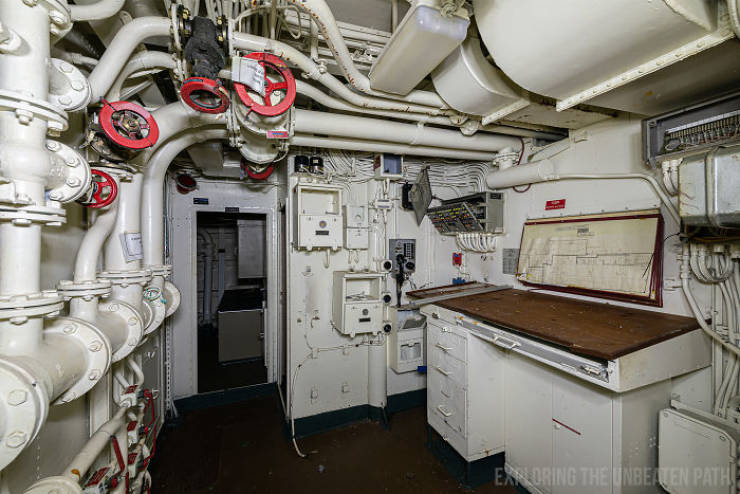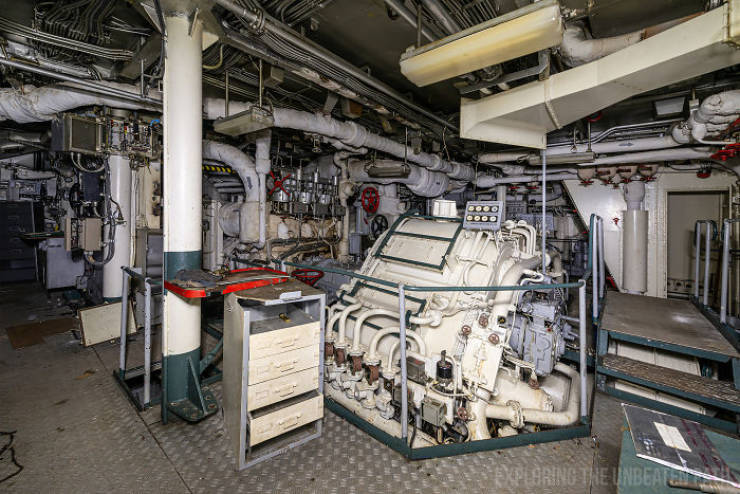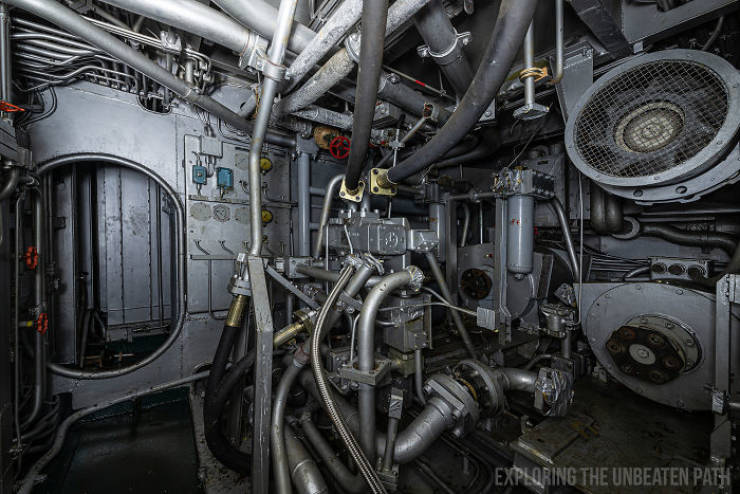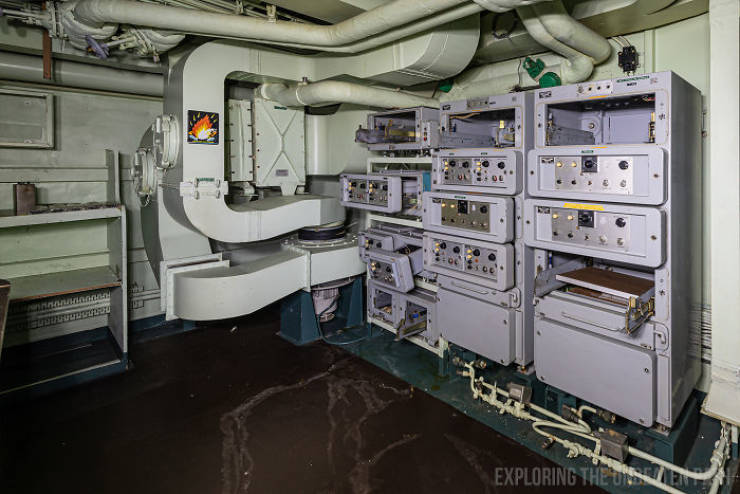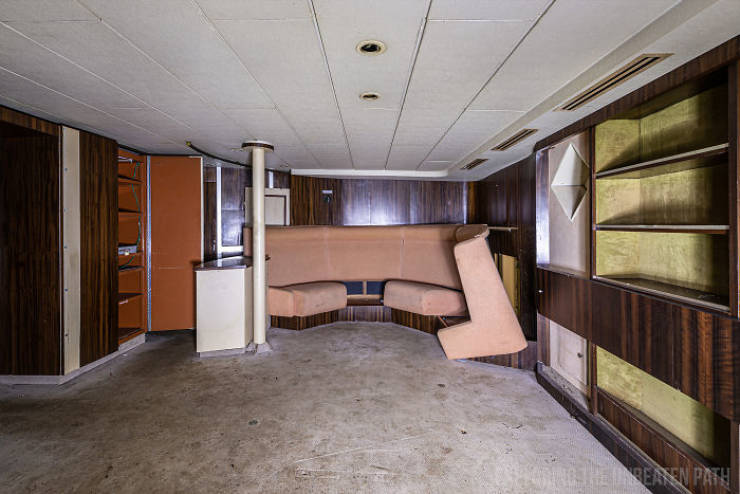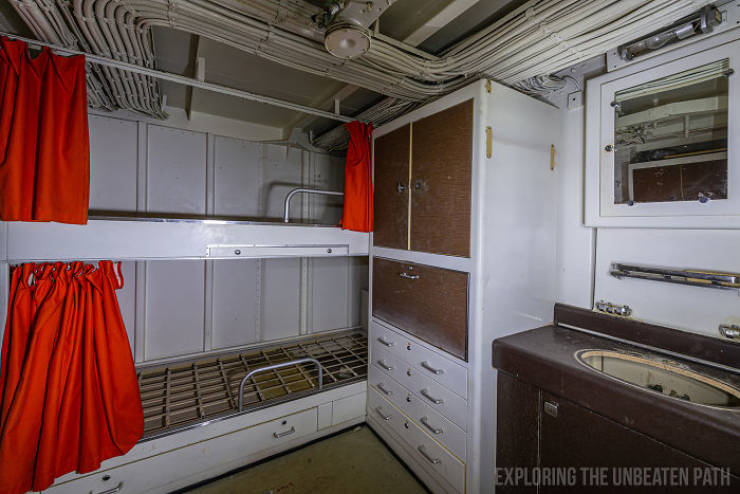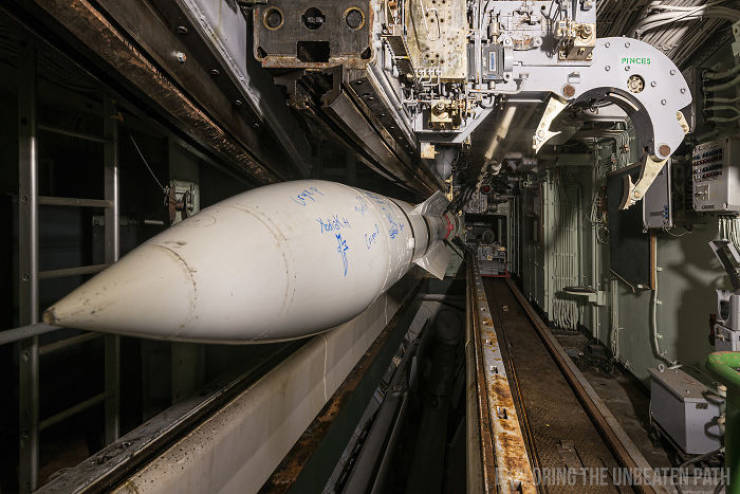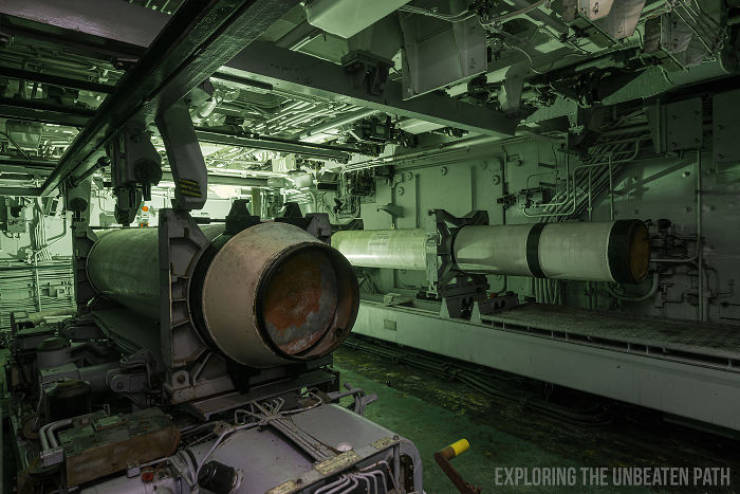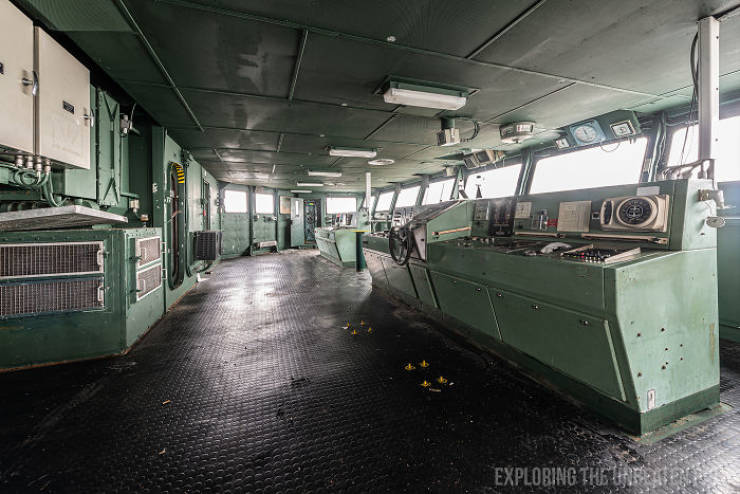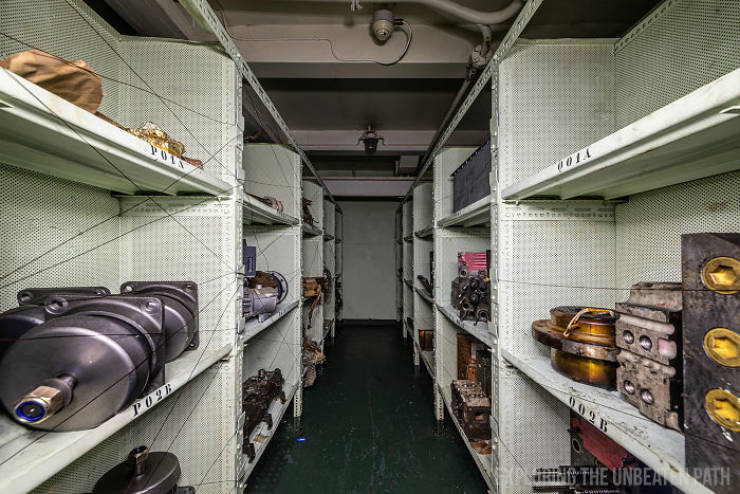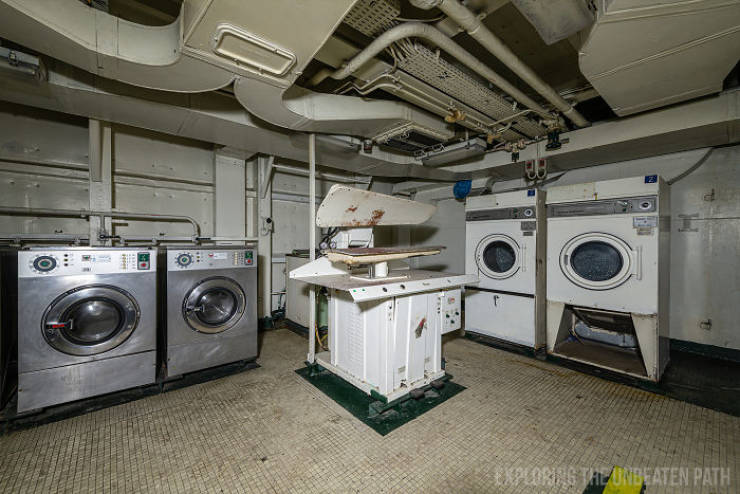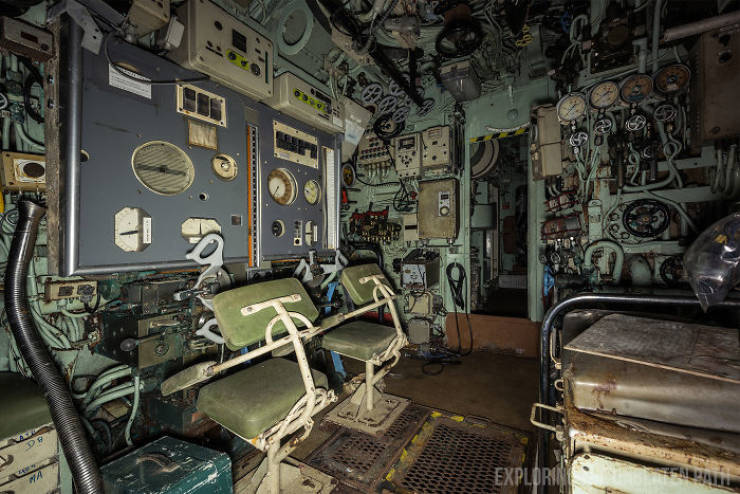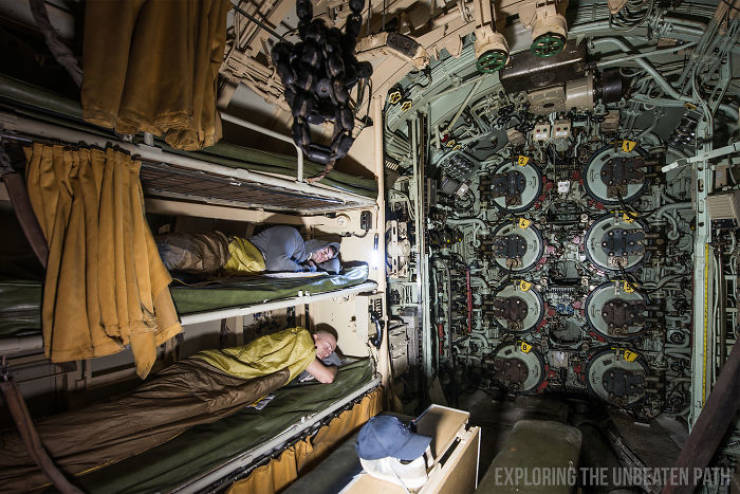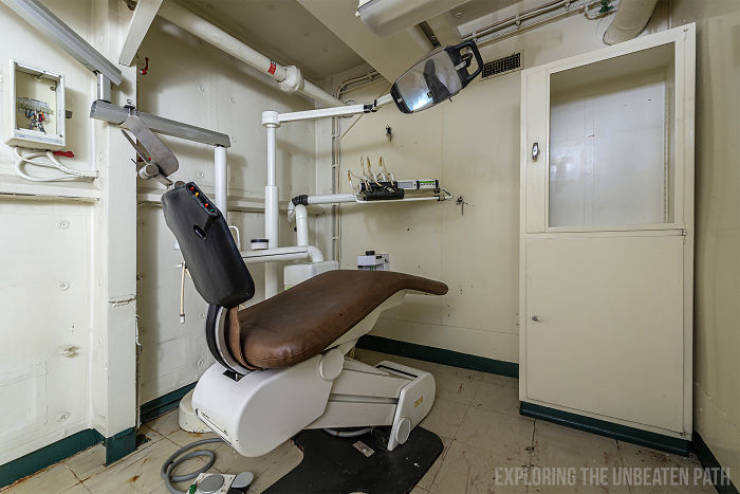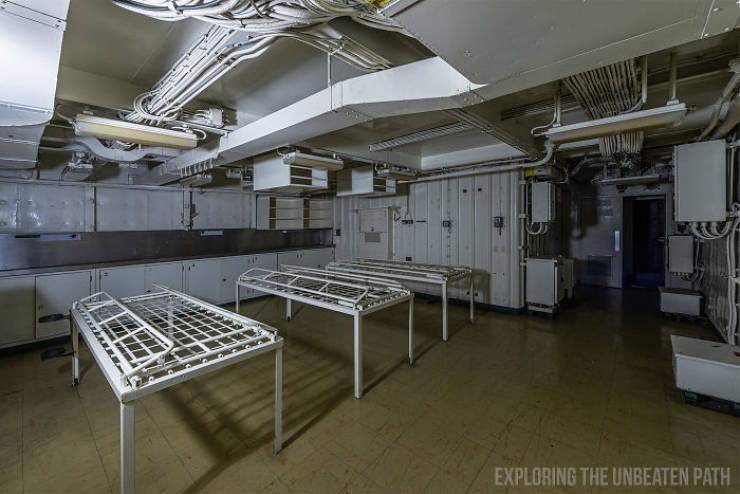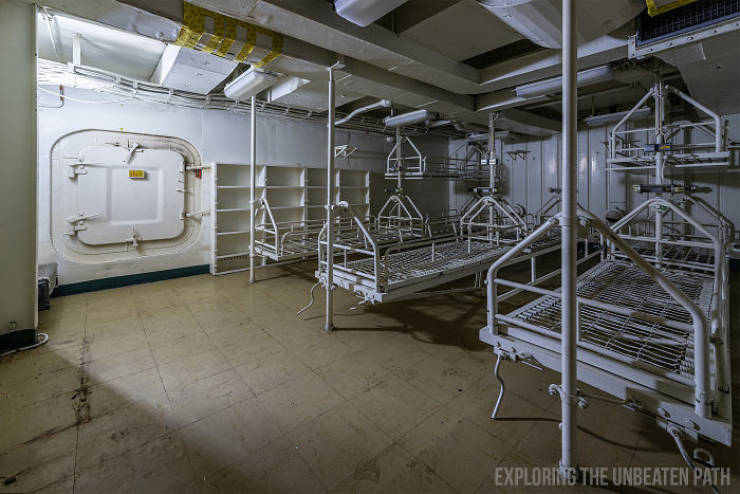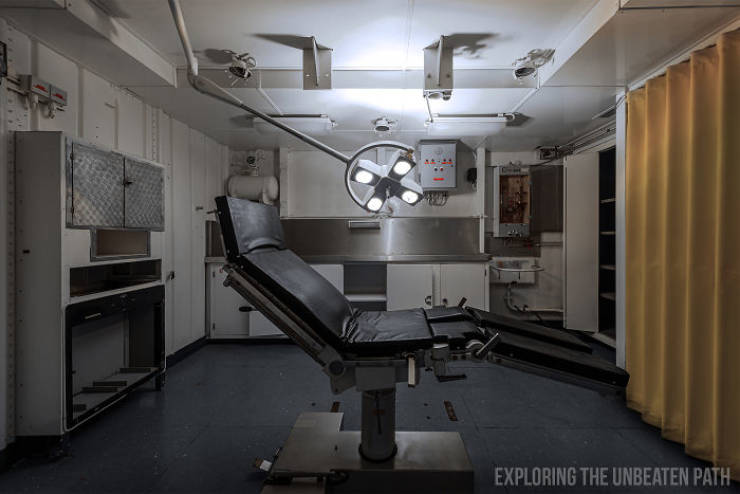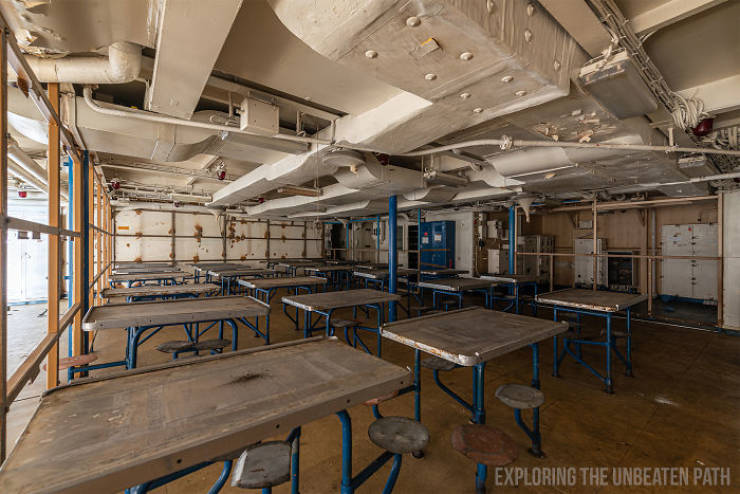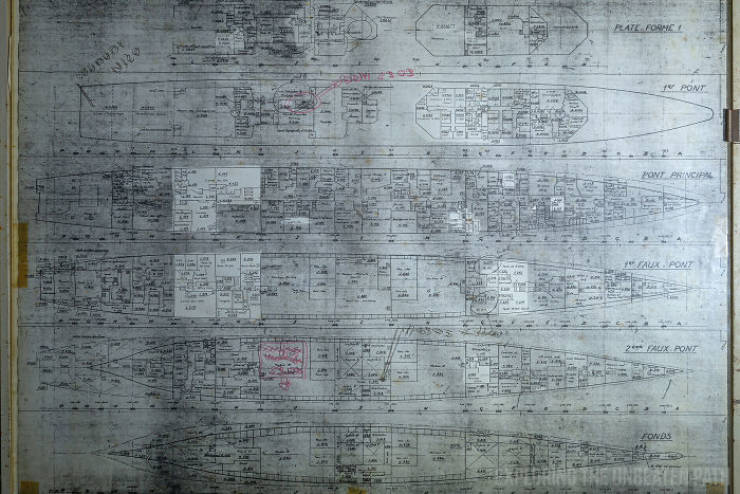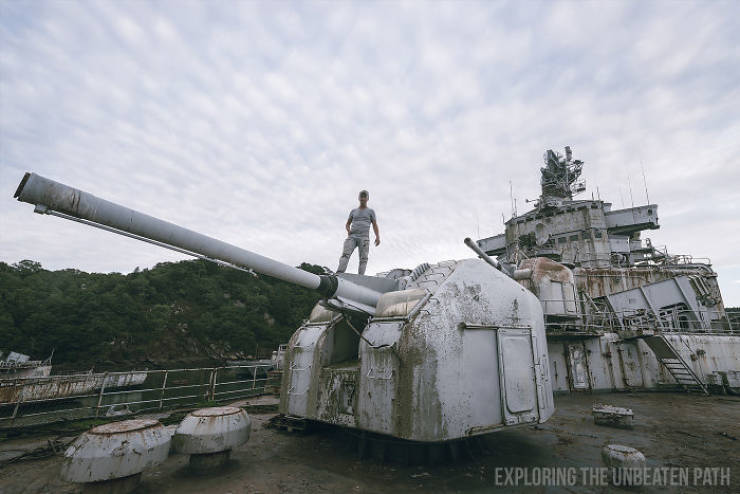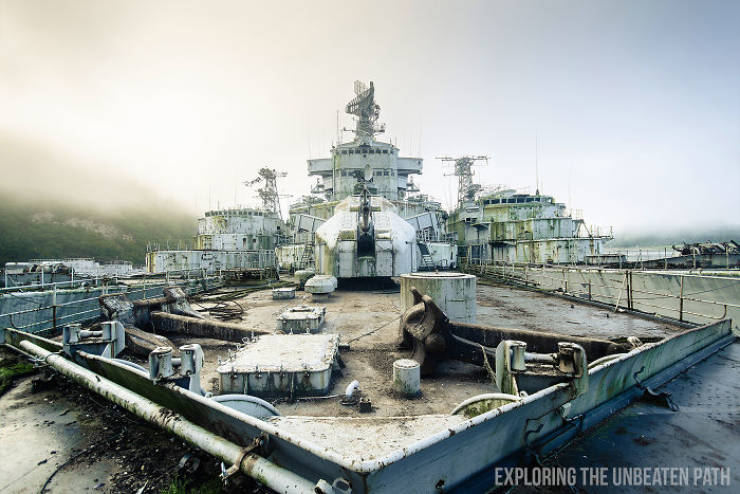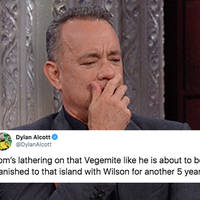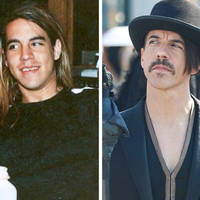Bob Thissen has visited this “ship cemetery,” where old decommissioned warships have a last resting place before getting scrapped, several times between 2011 and 2016.
Over the years, Bob has photographed and filmed a lot of similar places before they’re gone forever. “I think it’s important to break the law for this because a piece of history gets lost if everybody obeys the rules. For example, the public wouldn’t be able to see the aftermath of the Fukushima disaster [if explorers didn’t trespass on the site].”
“The best looking ship of this bunch was the French cruiser Colbert. After being decommissioned, it was turned into a museum, so it was left intact when it was disarmed.”
“However, the ship needed an expensive paint job of about €500.000, and the museum had to close around 2010,” Bob explained. “[They] towed it to the ship cemetery where it was finally scrapped in 2016.”
Bob didn’t find as many artifacts on the other ships as he did on Colbert. “Some ships are totally stripped when they are disarmed, making them not so interesting to photograph.”
The navy usually seals these ships quite well, and at times Bob had to spend hours searching for a way to get in. “These ships are gigantic, they’re like floating villages,” he said. “You could explore them for days and still find new rooms. They’re a real maze, and each staircase leads to another compartment. Also, it’s pitch black inside these ships, making it hard to photograph.”
Smells of oil and diesel run through these ships. “Inside, most places feel claustrophobic, and sailors didn’t have much privacy, sleeping with 9 other people in a few square meters.”
The naval police and other special teams protect the ships. “They come by pretty often to make sure nobody is on the ships,” Bob explained.
“Sometimes a special crew comes on board and checks the ships. We had to hide sometimes so they wouldn’t catch us.”

